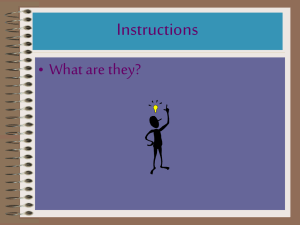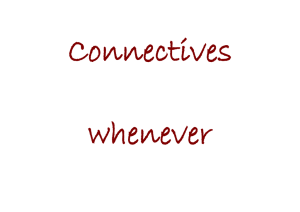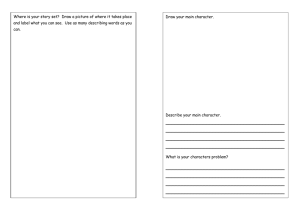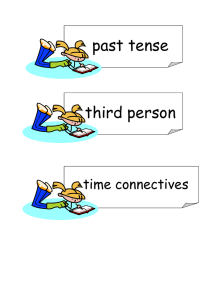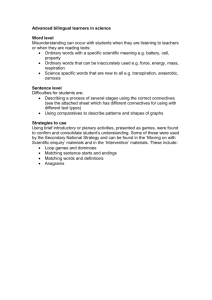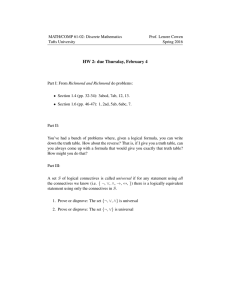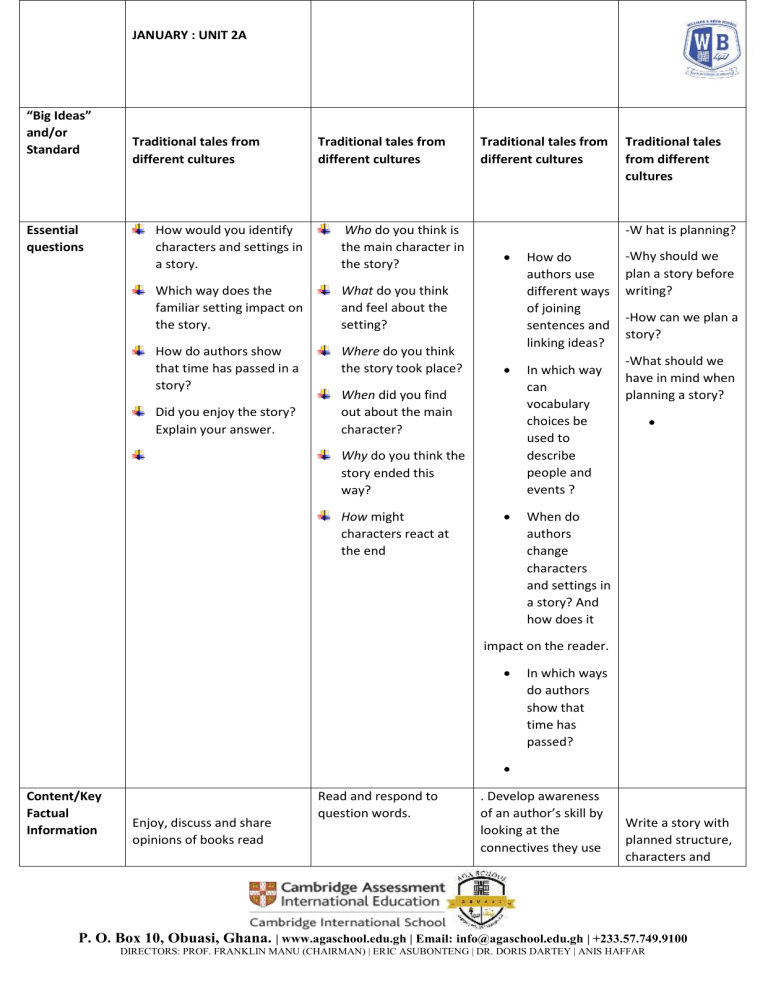
JANUARY : UNIT 2A “Big Ideas” and/or Standard Essential questions Traditional tales from different cultures Traditional tales from different cultures How would you identify characters and settings in a story. Who do you think is the main character in the story? Which way does the familiar setting impact on the story. What do you think and feel about the setting? How do authors show that time has passed in a story? Where do you think the story took place? Did you enjoy the story? Explain your answer. Traditional tales from different cultures -W hat is planning? When did you find out about the main character? Why do you think the story ended this way? How might characters react at the end Traditional tales from different cultures How do authors use different ways of joining sentences and linking ideas? In which way can vocabulary choices be used to describe people and events ? -Why should we plan a story before writing? -How can we plan a story? -What should we have in mind when planning a story? When do authors change characters and settings in a story? And how does it impact on the reader. In which ways do authors show that time has passed? Content/Key Factual Information Enjoy, discuss and share opinions of books read Read and respond to question words. . Develop awareness of an author’s skill by looking at the connectives they use Write a story with planned structure, characters and P. O. Box 10, Obuasi, Ghana. | www.agaschool.edu.gh | Email: info@agaschool.edu.gh | +233.57.749.9100 DIRECTORS: PROF. FRANKLIN MANU (CHAIRMAN) | ERIC ASUBONTENG | DR. DORIS DARTEY | ANIS HAFFAR together. Start to make simple inferences. Find and discuss new and interesting words in reading to link sentences, their choice of vocabulary and how they signal the passage of time setting, interesting words and phrases, a variety of connecting words, and words to signal the passing of time. Editing(improve own writing) . Skills Differentiate between characters, setting and event. Predict and ask questions about the plot of a story. Review a book read together with recommendations for others to read. Use a dictionary for new words and their meaning. Read stories with familiar settings Answer some simple questions about implicit meanings in the story and characters’ feelings . Identify connectives used by an author in a story. Analyze the impact of the connectives used in the story and on the reader. Enhance the quality of a story using connectives Record ideas about, setting and plot development using mind map. Make choices from your mind map to inform your planning. Select from the ideas to inform your planning Write longer captions under a sequence of pictures to retell the story. Draw a picture of the story before writing it. Write about some particular aspects of the story Retell the story in a story frame Retell the story independently. P. O. Box 10, Obuasi, Ghana. | www.agaschool.edu.gh | Email: info@agaschool.edu.gh | +233.20.898.6708 DIRECTORS: PROF. FRANKLIN MANU (CHAIRMAN) | ERIC ASUBONTENG | KELEPILE DINTWE | DR. DORIS DARTEY | ANIS HAFFAR Assessments Reading and comprehension. Reading comprehension Character mapping Book evaluation Book review Summarize the story Write the meaning of new words found in the story Discuss and answer questions about implicit meaning Written commentary on connectives Oral presentation Write a story using connectives to signal time Plan a story Write a story Retell a story Draw a caption to retell a story. As learners write, encourage them to use: Group discussion a phonic representa tion for tricky unknown words high frequency words they should know a variety of sentence openings sentence punctuatio n correctly (capital letters, full stops, question marks) speech marks to show dialogue connective s to link ideas Oral presentation Vocabulary Piggy Back time connectives to show how time is P. O. Box 10, Obuasi, Ghana. | www.agaschool.edu.gh | Email: info@agaschool.edu.gh | +233.57.749.9100 DIRECTORS: PROF. FRANKLIN MANU (CHAIRMAN) | ERIC ASUBONTENG | DR. DORIS DARTEY | ANIS HAFFAR passing Activities Character Profile Story board Modelling Group discussion Read and answer comprehension questions about implicit meaning Modelling their story makes sense and they have followed their plan they have spelled most words correctly and the verbs are in the past tense for narration the punctuatio n, including question marks and speech marks, is correct they have chosen the best words, including a variety of words to link sentences. . Oral presentation Story boards Short story Games on P. O. Box 10, Obuasi, Ghana. | www.agaschool.edu.gh | Email: info@agaschool.edu.gh | +233.20.898.6708 DIRECTORS: PROF. FRANKLIN MANU (CHAIRMAN) | ERIC ASUBONTENG | KELEPILE DINTWE | DR. DORIS DARTEY | ANIS HAFFAR connectives Resources 100 Literacy hours 100 Literacy hours 100 Literacy hours Nelson Thornes Nelson Thornes Nelson Thornes 100 Literacy hours Nelson Thornes P. O. Box 10, Obuasi, Ghana. | www.agaschool.edu.gh | Email: info@agaschool.edu.gh | +233.57.749.9100 DIRECTORS: PROF. FRANKLIN MANU (CHAIRMAN) | ERIC ASUBONTENG | DR. DORIS DARTEY | ANIS HAFFAR
